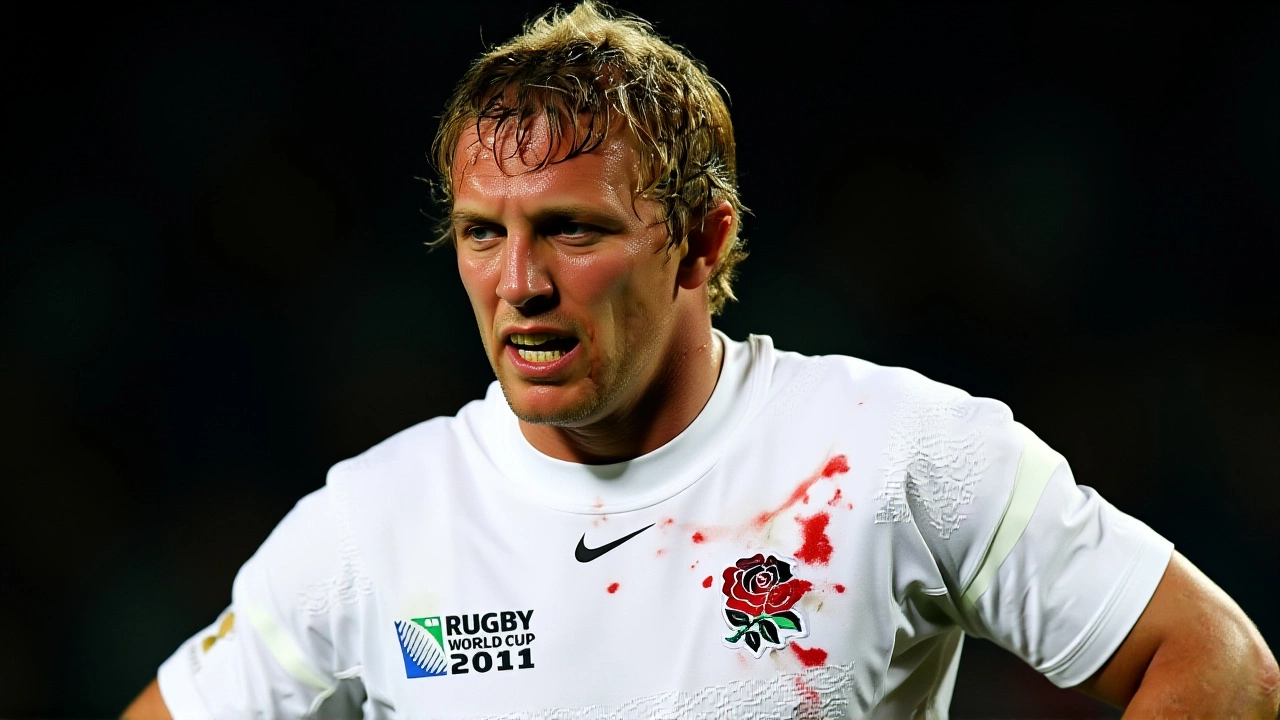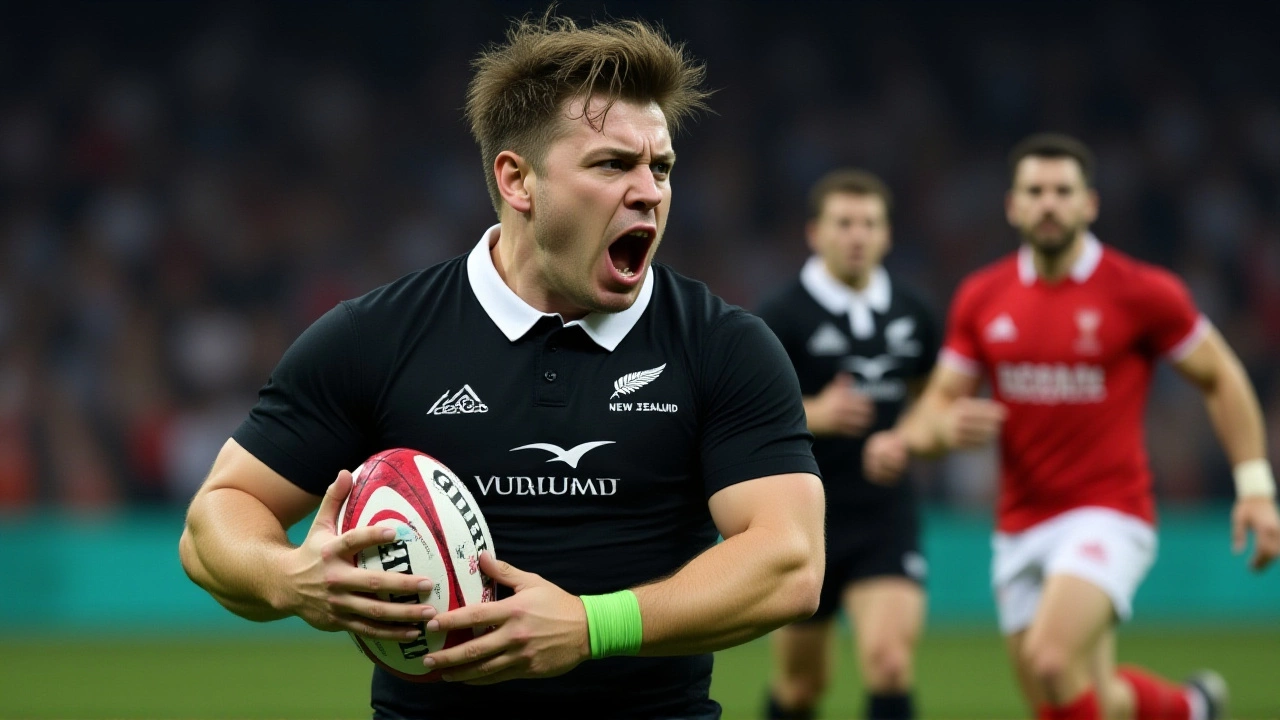When Lewis Moody, former England rugby union centre revealed his diagnosis with motor neurone disease (MND) in a candid BBC interview, the rugby world felt a collective gasp.
The 47‑year‑old, a stalwart of the England national rugby union team, announced the news on 3 October 2025, describing it as "a fairly sizable shock" for him and his family. He spoke from his home in Leeds, a city that now bears the weight of another heartbreaking story in the sport.
Moody’s revelation adds his name to a growing list of former players battling the same relentless illness, joining the late Scottish international Dodie Weir and the beloved Leeds Rhinos legend Rob Burrow, both of whom succumbed to MND in recent years.
Why This Matters: A Brief Timeline
- 22 Nov 2003 – Rugby World Cup 2003Australia victory, with Moody as a key centre.
- 2019 – Rob Burrow diagnosed with MND, retires from professional rugby.
- 2022 – Dodie Weir announces her own MND diagnosis.
- 3 Oct 2025 – Lewis Moody publicly shares his diagnosis.
Moody’s Own Words
"I think it's safe to say it came as a fairly sizable shock to all of us," Moody told the BBC’s BBC Sport correspondent. "But over the last couple of months, especially the last few weeks, there was this lingering feeling at the back of our minds..." He paused, eyes briefly misting, before continuing, "Until the day the doctor gave me the news, I was still hoping it wouldn't be true."
The raw honesty of his statement struck a chord with fans on social media, many echoing the same sense of disbelief and grief.
Medical Context: Is Rugby a Risk Factor?
Scientists have been examining a possible link between high‑impact sports and neuro‑degenerative diseases for decades. A 2020 study by the Medical Research Council found a slightly higher incidence of MND among former professional rugby players compared with the general population. However, the research stopped short of proving causation.
Dr. Emily Hart, a neurologist at University College London Hospitals, explains, "We know repetitive head trauma can contribute to a range of brain injuries, but motor neurone disease is a complex condition with genetic and environmental components. No single factor has been definitively pinned down yet."
What is clear, though, is that awareness is growing. The Rugby Football Union (RFU) announced new funding for MND research in January 2025, pledging £1 million over three years.
Community Reaction: Grief, Support, and Action
Within hours of the interview, messages poured in from teammates, rivals, and fans worldwide. Former England captain Martin Johnson tweeted, "Lewis gave everything for England. Now it's our turn to rally behind him and the fight against MND."
Support groups such as MND Association reported a 28 % spike in donations following Moody’s announcement. "The profile that Lewis brings to this cause is invaluable," said the charity’s chief executive, Sarah Lloyd.
At a charity match held at Twickenham on 15 October, players from across the Premiership donned special sleeves bearing the MND ribbon. The event raised £250,000, earmarked for research and patient support.
Impact on the Game: Safety Measures and Future Safeguards
In response to the growing concern, the RFU is reviewing concussion protocols introduced in 2022. Head‑gear trials, already piloted in youth leagues, may become mandatory for senior players if studies suggest a protective benefit.
Rugby clubs are also stepping up education. Leeds’s local club announced a partnership with neurologists to provide regular screening for former players.
"Early detection could make a huge difference," says Leeds’ medical director, Dr. Tom Reynolds. "Even if we can't prevent MND, we can at least manage symptoms sooner and improve quality of life."
Historical Perspective: Past Cases and Lessons Learned
The shadow of MND over rugby isn’t new. In the 1990s, former Scotland lock Gordon Watson was diagnosed, prompting the first formal inquiry into player health. The resulting report urged governing bodies to fund longitudinal health studies.
Since then, the sport has seen incremental progress, but each new case—like Moody’s—reminds us that the battle is far from over.
What’s Next for Lewis Moody?
Moody has said he plans to become an ambassador for MND awareness, joining forces with the MND Association and the RFU’s new research fund. He hopes his platform will accelerate breakthroughs that could one day spare a future player the same fate.
"If sharing my story helps one person get diagnosed earlier, or fuels a study that finds a cure, then this terrible news can serve a purpose," he remarked, voice steady despite the gravity of his condition.
Key Facts
- Lewis Moody, 47, former England centre, diagnosed with motor neurone disease.
- Announcement made on 3 Oct 2025 via BBC interview.
- Joins former players Rob Burrow and Dodie Weir who died of MND.
- RFU pledges £1 million for MND research; new safety reviews underway.
- Charity match at Twickenham raised £250,000 for the MND Association.
Frequently Asked Questions
How does Lewis Moody’s diagnosis affect current players?
It heightens awareness that neuro‑degenerative diseases can emerge years after retirement. Clubs are now emphasizing regular medical check‑ups and reinforcing concussion protocols to protect active players.
What research is being done on a possible link between rugby and MND?
Studies by the Medical Research Council and several universities are analysing long‑term health data of former professional players. While a definitive causal link hasn’t been proven, patterns of higher incidence are prompting deeper investigation.
What support is available for families dealing with MND?
The MND Association offers counseling, equipment grants, and a 24‑hour helpline. Recent fundraising efforts have expanded these services, allowing quicker access to specialist care.
Will the RFU change its safety regulations?
The governing body is reviewing concussion protocols, considering mandatory head‑gear trials for senior matches, and funding longitudinal health monitoring for retired players.
How can fans contribute to MND research?
Donations to the MND Association, participation in charity events, and spreading awareness on social media are all effective ways. Recent campaigns have shown that high‑profile athletes can drive a significant surge in donations.

